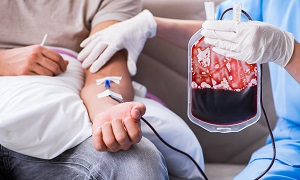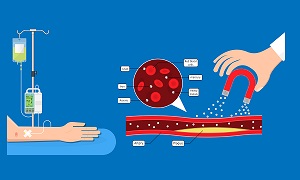What is Thalassemia?
Thalassemia is an inherited blood disorder in which the patient’s body makes inadequate amount or abnormal form of haemoglobin. Haemoglobin of Red Blood Cells carries oxygen through the body. Thalassemia results in damage of large number of RBCs thereby making the patient anemic.
Thalassemia is a genetic disorder. Thalassemia is caused by mutations in the DNA of cells that forms the haemoglobin & these are passed from parents to children.
There are two proteins involved in the formation of haemoglobin, viz. Alpha and Beta proteins. Type of Thalassemia depends on these two proteins. Alpha thalassemia means the body lacks alpha haemoglobin & Beta thalassemia is when the body lacks Beta haemoglobin.
Signs & symptoms of Thalassemia
Signs & symptoms of Thalassemia are:
- Fatigue
- Weakness
- Brittle bones
- Loss of appetite
- Pale or yellow skin
- Jaundice
- Swelling in the abdomen
- Dark urine
- Delayed growth in children
- Heart problems
Diagnosis of Thalassemia
- Prenatal Examinations- Certain tests can be done before a baby is born to find out if the baby has thalassemia. These tests are:
- Chorionic villus sampling test involves removal of tiny piece of the placenta for evaluation and is usually done around the 11th week of pregnancy.
- Amniocentesis involves taking a sample of the amniotic fluid that surrounds the foetus and is usually done around the 16th week of pregnancy.
Treatment of Thalassemia
Mild cases of thalassemia require no treatment. Occasionally, blood transfusion and surgery is required to help manage thalassemia complications. Treatment is required for moderate to severe thalassemia. The treatment options are:





